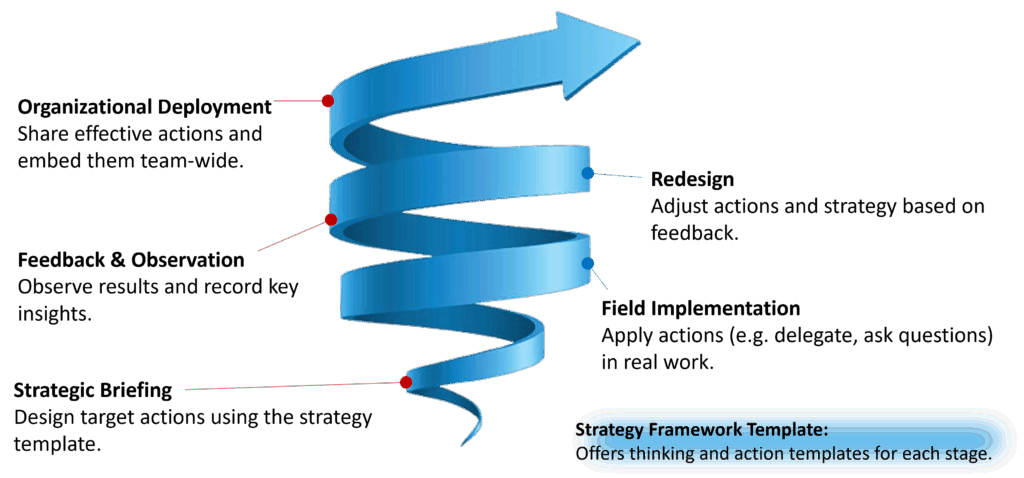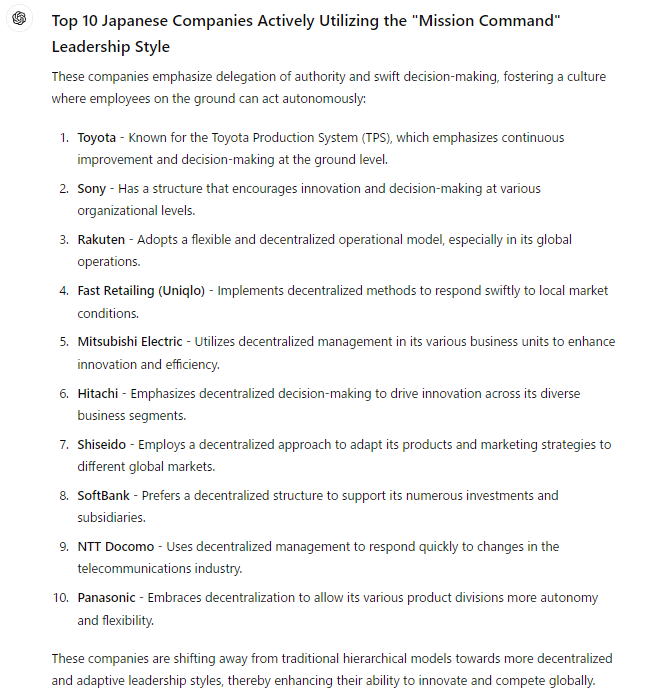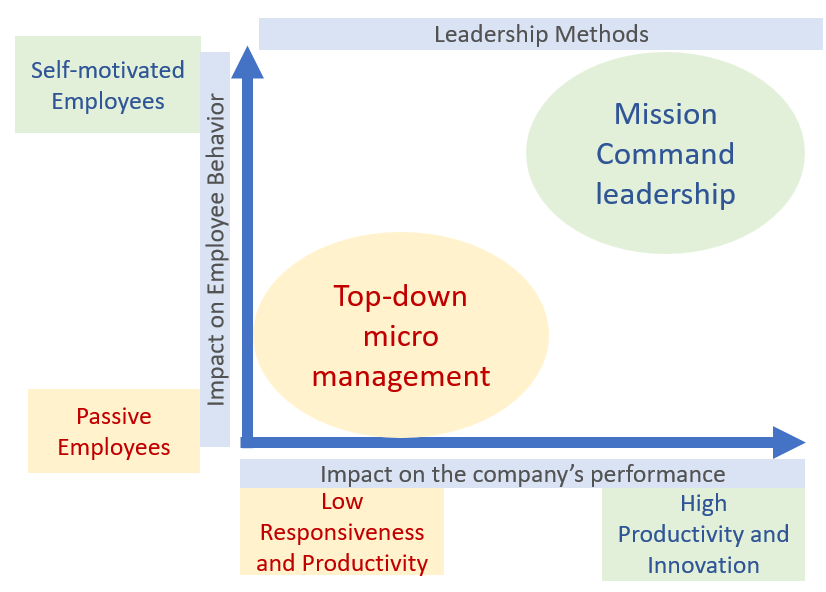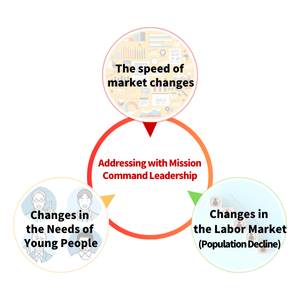
Develop Leaders. Deliver Results — Leader Strategy Lab

Update your leadership strategy before you're left behind by change.
Japan, once ranked 2nd in global labor productivity, has now dropped to 39th.
At the root of this decline lie two major issues:
a lack of effective delegation and a widening generation gap in the workplace.
Today’s business environment demands a new kind of leadership—
one that fosters flexibility, initiative, and teamwork.
How do you lead a younger generation that leaves on time and waits for instructions?
At the Leader Strategy Lab, you'll redesign how you lead through:
- Practical communication strategies that increase team productivity
- A structured approach to delegation that leads to real results
This program is essential for executives and managers alike.
Why not take this opportunity to update your leadership mindset for the modern era?
Why Delegation Drives Productivity
To boost team productivity, there are three key principles every leader must understand:
- Delegation is not just task assignment
True delegation means entrusting ownership—not just handing off tasks. - Leadership must evolve with the times
Today’s leaders need to understand what motivates younger team members and know how to earn their trust. - Communication builds trust
Leaders who delegate with confidence enable their teams to work with commitment and ownership.
Mastering these principles will elevate not only individual performance but the collective power of your entire team.
The Three Solutions M-MCL Offers
- Understand the values of younger generations
Learn leadership techniques that prioritize transparency and mutual respect.
- Learn effective instruction methods
Practice clear, friendly communication that gets younger employees moving.
- Inspire ownership and engagement
Create the conditions for team members to take initiative and commit to results.
What You Can Expect from This Program
By completing this program, you can expect the following concrete outcomes:
- Boost productivity across your team
Learn proven approaches to improve team output by up to 50%. - Increase motivation and ownership among team members
Move beyond instruction-based management and foster true ownership in your team. - Build trust and create a safe environment for delegation
Establish an open and reliable team culture where members can be confidently entrusted with key tasks. - Understand your team's mindset and give more effective guidance
Gain insight into your younger team members' perspectives and values to deliver clearer, more targeted leadership. - Deliver fair feedback and reduce frustration
Apply transparent and fair evaluation methods to prevent drops in motivation and engagement.
Structure and Implementation Process of the Leader Strategy Lab
Key Features of the Program
Strategic Goal Setting Based on Clarity and Insight
Identify challenges objectively and set clear, measurable goals at both behavioral and operational levels.
Sustained Execution and Long-Term Integration
Strategic actions are applied repeatedly and refined over time to ensure sustainable, measurable results.
Regular Leadership Strategy Sessions
Depending on the phase, sessions are held weekly or biweekly to review progress, course-correct, and strengthen decision-making.
Ready-to-Use Strategic Templates and Frameworks
Field-tested tools and models accelerate implementation and organizational alignment.
Responsive Strategic Support
Email-based Q&A and feedback ensure immediate support throughout the implementation process.
The Strategic Spiral
The Strategic Spiral is a process where leaders apply what they’ve learned as a “strategy” in real workplace settings,
continuously reviewing and redesigning their approach.
This ensures that behavioral change is not temporary—it becomes embedded throughout the organization.

A Structure That Enables Strategic Execution
Over a six-month period, the program provides customized leadership sessions and continuous learning tools.
These ensure that change becomes embedded, not temporary.
This is not just a training course— it's a strategic redesign process for your organization.
M-MCL Program Overview
Leader Strategy Lab – Core Skills Track
– Build core delegation and development skills –
Duration: 6 months (14 hours total)
A focused program to boost team productivity by 50% through mastering the fundamentals of strategic leadership—specifically "delegation" and "development."
Key Contents:
• Twice-monthly 1-on-1 sessions (First month: two 2-hour sessions)
• Designing authority delegation skills to boost team productivity
• Asking the right questions to develop rather than drive your team
• Templates and frameworks for real-world application
• Email-based support included
Leader Strategy Lab – Team Development Track
– Build systems that move your team and sustain results –
Duration: 6 months (27 hours total)
A practical program for leaders aiming to become “team developers.” Learn how to use questions and systems to build self-directed teams and pass on developmental leadership skills.
Key Contents:
• Personalized support via email and phone
• Practical skill-building in questioning, delegating, and feedback
• Task design and review methods to support behavioral integration
• Tailoring leadership skills to real workplace needs
• Learning how to build and communicate development systems
Leading Companies Are Adopting the "Mission Command" Leadership Style
The "Mission Command" leadership style, a method even major corporations are implementing, is widely recognized and can be found through a simple ChatGPT search.

About Mission Command Leadership
Mission Command Leadership is a leadership philosophy and approach that originated in the 19th-century German military. It was developed in response to the rapidly changing nature of warfare and the need for decentralized decision-making in complex and dynamic battlefield conditions.
Mission Command emphasizes the importance of providing subordinates with a clear mission or purpose while granting them the freedom to exercise their judgment and initiative to achieve that mission.
Leaders are expected to provide guidance, intent, and resources while delegating decision-making authority to the lowest possible level.
Successful implementation of Mission Command requires trust, mutual understanding, and a shared comprehension of the overall mission between leaders and their subordinates. Effective communication and decentralized decision-making are essential for its success.
Mission Command Leadership is considered the optimal leadership framework for adaptability, flexibility, and decentralized execution. It enables organizations to respond and adapt to complex and rapidly changing environments. Additionally, it is recognized as the best framework for enhancing motivation at all levels of the organization, fostering innovation, initiative, and a sense of ownership among subordinates. This approach increases agility, decision-making efficiency, and the overall success rate of the mission.

Leadership Aligned with the Times Must Address These Three Challenges
The speed of market changes
For 60 years, we used rotary phones. In just 30 years, we’ve transitioned from basic mobile phones to a world where video conferencing is accessible anytime, anywhere. Marketing strategies from 10 or even 5 years ago have evolved drastically to adapt to today’s environment. Artificial intelligence, tools like ChatGPT, and other advancements are reshaping every aspect of business—manufacturing, marketing, and finance—diminishing the value of "20 years of experience." As a result, the products, services, and sales methods demanded by the market are changing at an unprecedented pace.
Shifting Needs of Young Employees
With the decline of extended families, the rise of dual-income households, the emergence of social media and online communities, and the evolution of educational and parenting philosophies (e.g., helicopter parenting), young workers' expectations for their jobs and leaders have changed dramatically. The advent of tools like Google and ChatGPT has further amplified these shifts, creating significant generational communication gaps.

Changes in the Labor Market (Population Decline)
Amidst a shrinking population, the demand for young talent who can adapt to rapidly changing market needs is skyrocketing, making them highly sought after.
Gone are the days when employers could easily say, "We don’t need you if you leave." The focus has now shifted to how organizations can elevate their employees, improve retention, and establish strong foundations for their workforce. Employee engagement and retention have become the most critical human resource strategies today.
Workshop Fees
| コース名 | Participation Fee | Optional 1-on-1 Consulting |
| New Leader Strategy Conference – Core Skills | ¥448,000 | ー |
| New Leader Strategy Conference – Team Development | ¥810,000 | ー |
Workshop Schedule

※ The schedule for in-house courses will be determined upon consultation.
